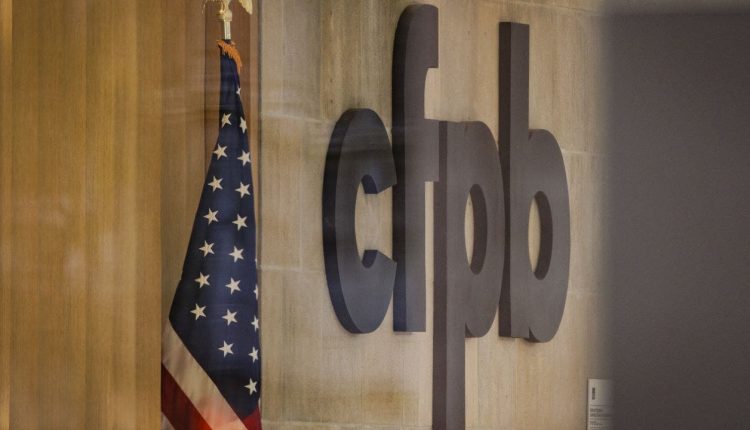The Supreme Court is set to hear oral arguments Tuesday in a case regarding the Consumer Financial Protection Bureau’s constitutionality that could leave the financial services watchdog facing an uncertain future.
The Consumer Financial Protection Bureau (CFPB) was formed in 2011 in the wake of the financial crisis and the Great Recession. The CFPB was created as an independent agency within the Federal Reserve under the Dodd-Frank Act, which specified the agency would be funded through fees collected by the Fed rather than through Congress’s annual appropriations process. The CFPB has regulatory authority over most entities operating in the financial sector, ranging from banks and credit unions to securities firms, mortgage servicers, payday lenders and debt collectors.
The Supreme Court will consider a challenge to the constitutionality of that funding mechanism raised by financial industry groups, who prevailed when the case was heard by the Fifth Circuit Court of Appeals, whereas the CFPB prevailed before the Second Circuit. The Fifth Circuit found that the CFPB’s structure violated the Constitution’s Appropriations Clause because the agency’s funding structure is “double-insulated” from congressional control because it receives funding from the Fed and is not subject to oversight.
“Even among self-funded agencies, the Bureau is unique,” the Fifth Circuit wrote in its ruling. “The Bureau’s perpetual self-directed, double-insulated funding structure goes a significant step further than that enjoyed by the other agencies on offer,” noting that the Comptroller of the Currency, National Credit Union Administration and the Federal Housing Finance Agency have budgetary autonomy. “None of the agencies cited above ‘wields enforcement or regulatory authority remotely comparable to the authority the [Bureau] may exercise throughout the economy.’”
FEDERAL JUDGE RULES AGAINST CFPB’S ANTI-DISCRIMINATION EFFORT
Under its budgeting process, the CFPB communicates its funding needs to the Fed each year, and the Fed has to transfer the requested funding as long as the amount does not exceed 12% of the Fed’s operating expenses, according to the Congressional Research Service.
“The stakes for the CFPB couldn’t be higher,” Fred Burnside, a partner at Davis, Wright, Tremaine, told FOX Business. “It’s whether or not the agency itself has legitimacy, whether or not it can proceed without its structure as constitutional and if it’s not constitutional, the order that they have passed or rule they have promulgated in recent years could be void.”
Burnside has been critical of inconsistencies in the CFPB’s rulemaking and enforcement actions that change as the White House changes hands between the parties.
“I think banks and credit unions have no problem being regulated, they just want to know what are the rules of the road and are they going to stay the same,” he explained. “And the problem is absent some funding, appropriations mechanism to have some check on them, it’s going to change administration to administration as to what’s okay or not okay and you can’t operate financial institutions that way.”
BANKING INDUSTRY PUSHES BACK ON CFPB’S WARNING OVER USE OF AI CHATBOTS
The Biden administration and Democratic lawmakers are advocating in support of the CFPB’s funding mechanism, warning that holding it unconstitutional could undermine regulatory efforts in other areas.
“The CFPB’s future is at stake in this court decision, along with the future of every other banking regulator,” said Sen. Elizabeth Warren, D-Mass., who helped create the CFPB over a decade ago, in remarks last week. “And the possible fallout doesn’t stop there. Social Security and Medicare are also operated outside of annual appropriations. A bad decision by the Supreme Court could wreck the financial security of millions of families and turn our economy upside down.”
The Federal Reserve and Federal Deposit Insurance Corporation (FDIC) are among the regulators funded outside the appropriations process. The Fed generates income through open market operations – the buying and selling of government securities – while banks pay the FDIC premiums on deposit insurance.
Social Security and Medicare are both considered mandatory spending programs by Congress and pay out benefits from revenue received via payroll taxes.
BIDEN ADMINISTRATION ANNOUNCES RULE TO REMOVE MEDICAL BILLS FROM CREDIT REPORTS
Misha Tseytlin, a partner at Troutman Pepper who wrote an amicus brief on behalf of Third Party Payment Processors Association opposed to the CFPB’s funding structure, told FOX Business, “If the Supreme Court finds that it’s unconstitutional, the next big question is going to be: is the Supreme Court is going to offer a meaningful remedy?”
Tseytlin noted that although the Supreme Court previously found a rule requiring that the CFPB’s director could only be removed for cause by the president was unconstitutional, it still allowed the agency to go on functioning in a manner that seeks to fix the violation.
He explained that the Court will have the ability to consider a variety of remedies if it finds that the CFPB’s funding structure is unconstitutional. Those range from subjecting it to increased congressional oversight to putting current rulemakings on hold or even invalidating past rules.
The Supreme Court is likely to issue a ruling on this case next year before its term concludes at the end of June 2024.
Read the full article here

